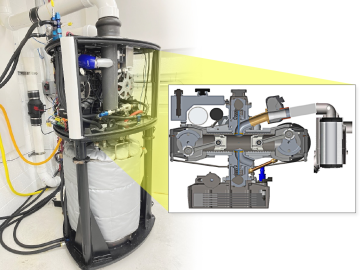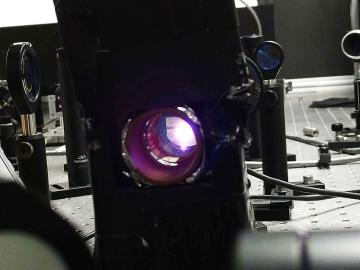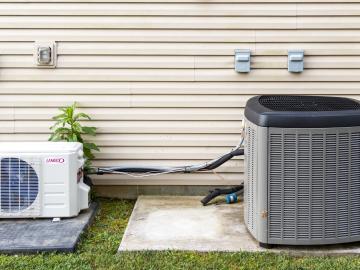Filter News
Area of Research
- (-) Building Technologies (2)
- (-) Computer Science (3)
- Advanced Manufacturing (6)
- Biological Systems (1)
- Biology and Environment (18)
- Clean Energy (48)
- Computational Engineering (1)
- Electricity and Smart Grid (1)
- Energy Sciences (1)
- Fusion and Fission (3)
- Isotope Development and Production (1)
- Isotopes (3)
- Materials (9)
- Materials for Computing (8)
- Mathematics (1)
- National Security (1)
- Neutron Science (8)
- Quantum information Science (1)
- Sensors and Controls (1)
- Supercomputing (7)
- Transportation Systems (1)
Media Contacts

ORNL researchers, in collaboration with Enginuity Power Systems, demonstrated that a micro combined heat and power prototype, or mCHP, with a piston engine can achieve an overall energy efficiency greater than 93%.

Oak Ridge National Laboratory, University of Tennessee and University of Central Florida researchers released a new high-performance computing code designed to more efficiently examine power systems and identify electrical grid disruptions, such as

To minimize potential damage from underground oil and gas leaks, Oak Ridge National Laboratory is co-developing a quantum sensing system to detect pipeline leaks more quickly.

Oak Ridge National Laboratory researchers designed and field-tested an algorithm that could help homeowners maintain comfortable temperatures year-round while minimizing utility costs.




